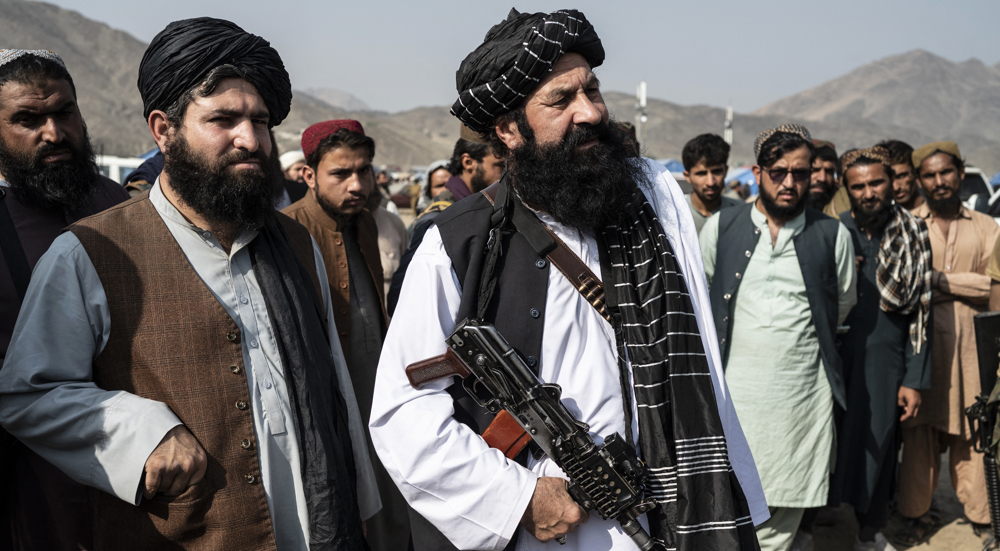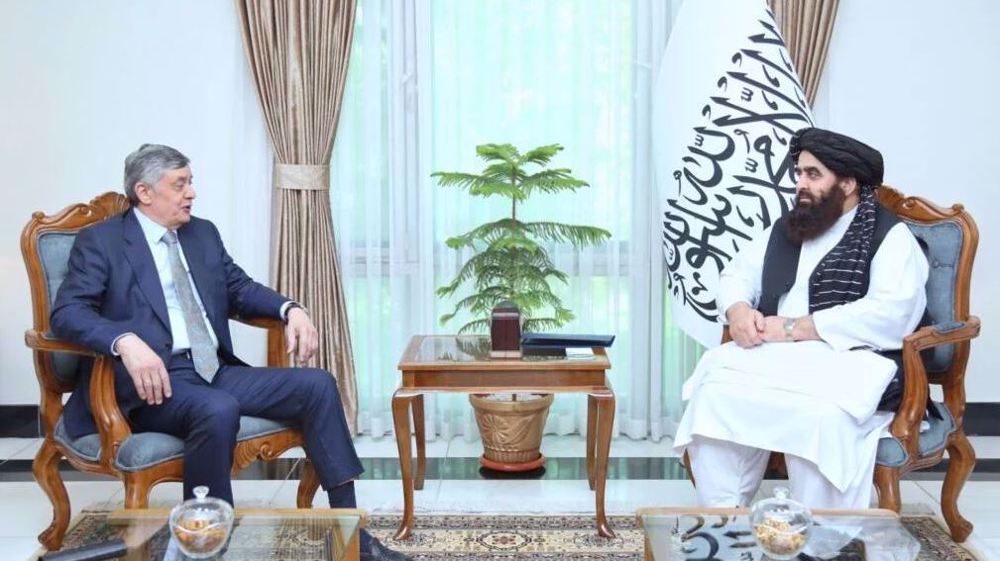Taliban not to enter into peace talks with Kabul: New leader
The Afghan Taliban’s newly-appointed leader, Haibatullah Akhundzada, has pledged that the militant group will not enter into any peace talks with the government in Kabul.
“No, no we will not come to any type of peace talks,” the man, identified as Akhundzada, said in an audio recording provided by the Taliban’s militant group on Wednesday.
“Taliban will never bow their heads and will not agree to peace talks,” said the new Taliban leader, adding, “People thought we will lay down our arms after Mullah Mansour’s death, but we will continue fighting till the end.”
Taliban appointed Akhundzada as their new leader, officially confirming that their former chief Mullah Akhtar Mansour was killed in a US drone strike last week.
Sirajuddin Haqqani, the head of a network responsible for a series of powerful bomb attacks across Kabul in recent years, and Mullah Mohammad Yaqoob, the son of founder Mullah Mohammad Omar, were also named deputies.

On May 21, the US Department of Defense announced in a statement that it had killed Mansour in a drone strike “in a remote area of the Afghanistan-Pakistan border region.” The Pentagon also announced that the operation had been authorized by President Barack Obama.
The remarks by new Taliban leader come as there have been growing differences among Taliban elements over peace talks with the Afghan government, with some vowing to fight for power instead of taking part in negotiations.
Pakistan, which wields influence on the militant group, mediated the first round of direct peace talks between delegates from the Afghan government and the Taliban last summer, but a planned second meeting was canceled after news broke that Taliban’s founder and long-time leader Mullah Omar had died two years ago.

The Taliban has seen a string of defections ever since the news about the death Mullah Omar broke in late July 2015. He died at a hospital in Pakistan’s southern port city of Karachi in April 2013.
Senior Afghan officials blame elements inside the Pakistani spy agency, Inter-Services Intelligence (ISI), for supporting the Taliban militants and sheltering its leadership, while Islamabad blames the Afghan government for giving shelter to the militants on its side of the border.
Senior officials in Kabul have been frustrated by what they see as Islamabad’s refusal to honor a pledge to force Taliban leaders based in Pakistan to join negotiations.
In recent months, a four-member group comprising Afghanistan, the United States, China and Pakistan has been attempting to revive the talks.
In April, the Taliban announced the start of its annual spring offensive against Afghan security forces and US-led foreign forces across the conflict-ridden country.
Iran, Egypt demonstrate necessary will to restore ties: Presidential aide
Iran president urges Muslim unity to counter Israeli aggressions
Cancer-stricken Palestinian prisoner tortured to death in Israeli custody: Report
Pezeshkian proposes development fund for D-8 member states
Yemen hails successful attacks on ‘strategic’ Israeli military sites
Iran blasts Israeli assaults on Yemen’s civilian infrastructure
Iran, Turkey urge end to Israeli war on Gaza to ensure regional security
Israeli soldiers expose shoot-to-kill policy in Gaza’s ‘kill zone’















 This makes it easy to access the Press TV website
This makes it easy to access the Press TV website